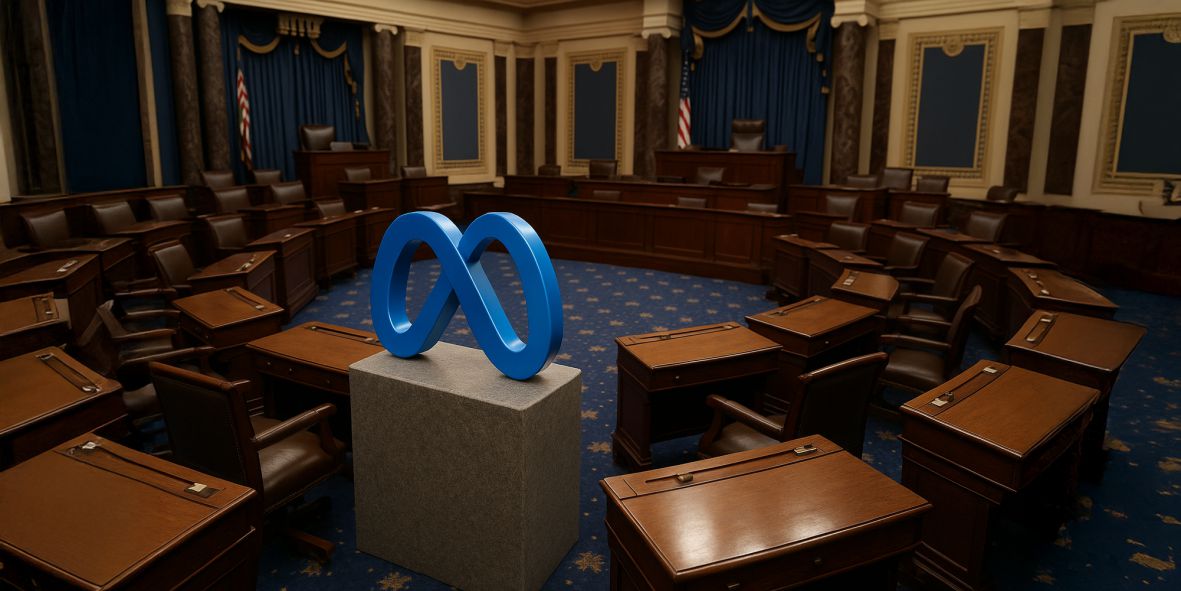Key takeaways
- U.S. senators are questioning Meta over the potential revival of the stablecoin project. The lawmakers sent a letter to CEO Mark Zuckerberg questioning whether Meta plans to re-enter the digital currency market by exploiting regulatory loopholes.
- Meta’s previous digital currency efforts failed under regulatory pressure. The company’s Libra project was shelved in 2020 after facing intense opposition from regulators worldwide.
- The GENIUS Act could provide Meta a pathway back into stablecoins. This pending legislation would allow companies to launch digital currencies through subsidiaries not majority-owned by the parent company, similar to Meta’s previous Libra plan.
- Senators are demanding transparency and accountability from Meta. Warren and Blumenthal want detailed answers about Meta’s stablecoin plans, legislative engagement, and potential challenges to proposed amendments that would restrict tech companies from stablecoin operations.
- The GENIUS Act is moving quickly through Congress, with the Senate advancing the bill through a procedural vote on June 11, with final passage expected next week.
Lawmakers Raise Concerns Over Digital Currency Revival
Senators Elizabeth Warren (D-MA) and Richard Blumenthal (D-CT) have raised concerns over reports that Meta Platform may revive efforts to develop a digital currency. In a letter to CEO Mark Zuckerberg this week, the senators questioned whether the tech giant is seeking to reenter the stablecoin market and potentially exploit regulatory loopholes in pending legislation.
The lawmakers, both ranking members on key Senate committees, warned that Meta’s involvement in digital currency could threaten financial stability and consumer privacy. They argue that allowing major technology firms to control private monetary systems would undermine democratic oversight and entrench corporate dominance in the financial sector.
Meta Could Not Launch Digital Currency Previously
Their letter cited Meta’s past attempt in 2019 to launch a digital currency, called Libra. The plan had collapsed in 2020 after intense bipartisan opposition from regulators and lawmakers worldwide. Despite restructuring the project and renaming it Diem, Meta ultimately shelved the initiative amid continued scrutiny.
GENIUS Act Could Give Meta The Golden Ticket
The senators expressed concern that the GENIUS Act, now moving through Congress, could reopen the door for tech companies to issue stablecoins through loosely affiliated entities. The bill permits firms to launch digital currencies via subsidiaries not majority-owned by the parent company, a model which is similar to Meta’s original Libra Association.
Warren and Blumenthal warned that such structures could allow Meta to maintain effective control over digital currency operations while evading direct regulatory oversight. They pointed to findings from prior congressional investigations showing Meta’s outsized influence over Libra despite its nominally decentralized framework.
The senators also criticized provisions in the GENIUS Act that would grant broad waiver authority to the executive branch, potentially allowing future administrations to bypass restrictions on corporate stablecoin issuers altogether.
Senators Demand Tough Answers from Meta
In their letter, the senators demanded detailed responses from Meta, including whether the company is considering a new stablecoin initiative, has engaged with lawmakers on the stablecoin legislation, or plans to challenge proposed amendments that would bar tech firms from owning or affiliating with stablecoin issuers.
They also cited potential harms, including Meta’s use of transaction data to erode financial privacy, the risk of anti-competitive practices, and the consolidation of monetary control within a private platform with a history of data misuse.
GENIUS Act May Get Enacted Soon
The Senate advanced the GENIUS Act through a procedural vote earlier on June 11. Final passage is expected next week, though efforts to include amendments that would tighten restrictions on technology companies were blocked by Republican leadership.
The exchange marks another flashpoint in the broader debate over tech sector influence and the future of digital finance, as lawmakers grapple with regulating emerging technologies while curbing corporate overreach.
Read More: What You Need to Know About GENIUS Stablecoin Act







